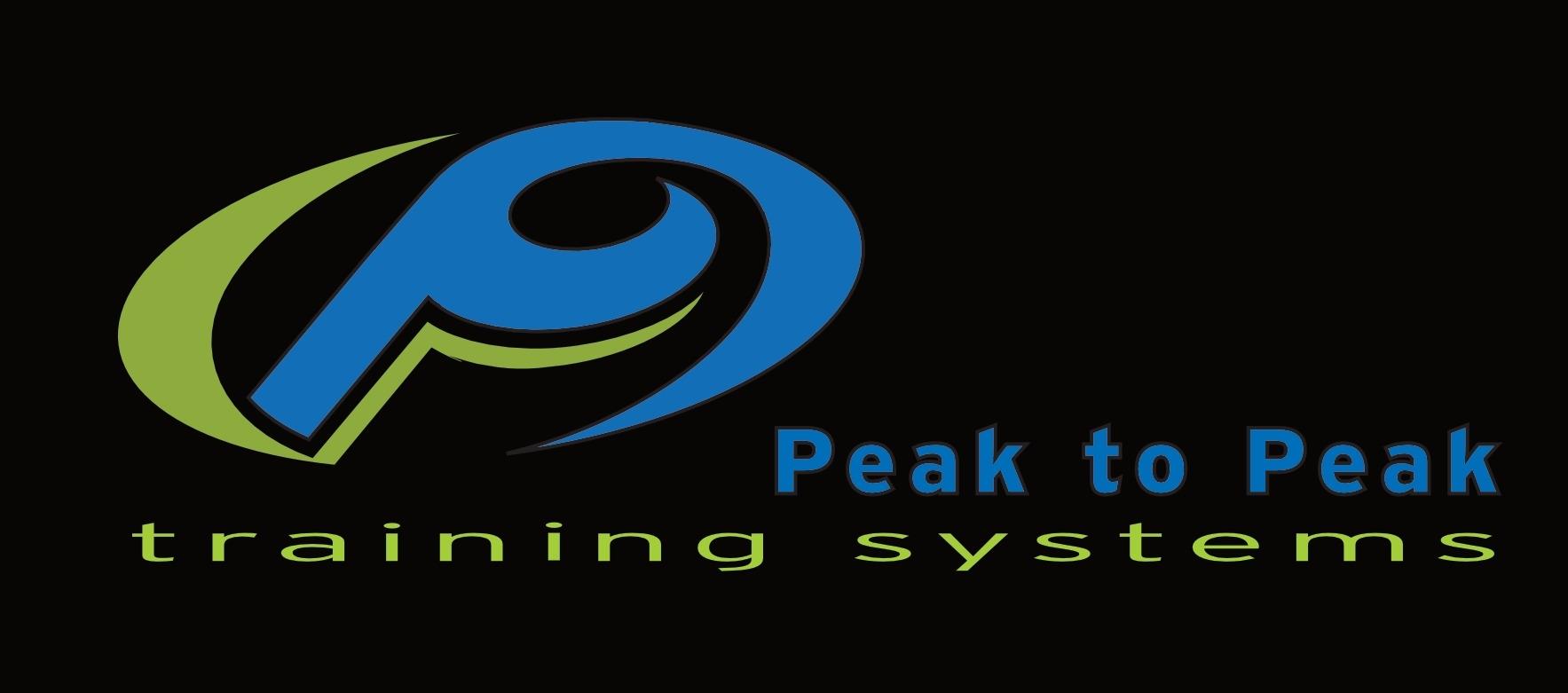Performance Testing & Training Zone Identification
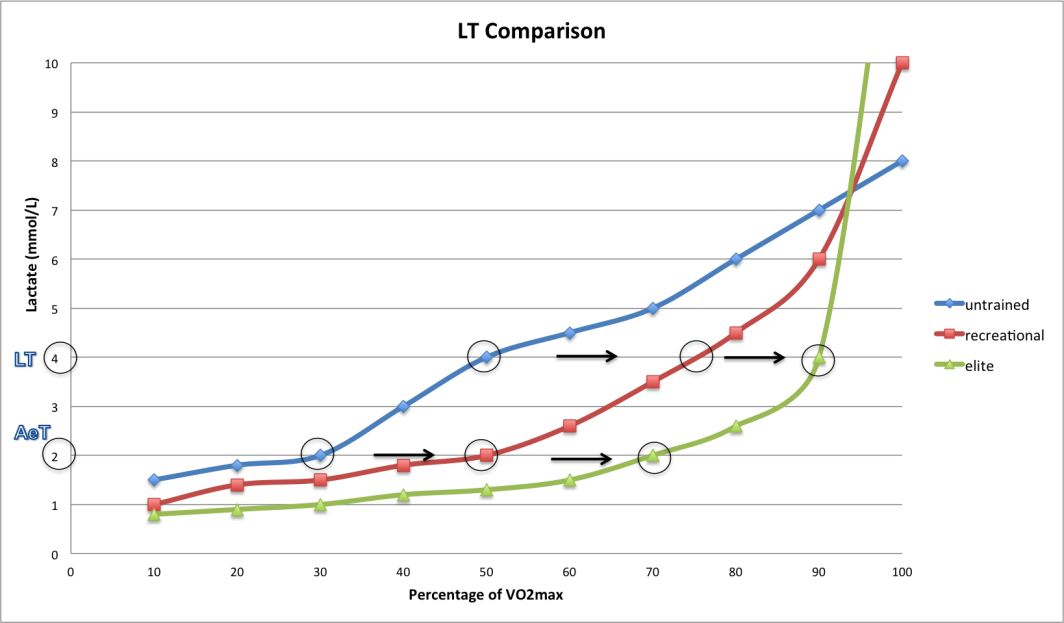 Cycling athletes who have limited time to train or wish to have specific guides to their training intensity must have a easily accessible gauge in which to manage their training intensity or effort. Some athletes prefer to use heart rate (beats per minute), some prefer to use power output (wattage - the amount of force you put into each pedal stroke), some use kilojoules (kj's - the amount of energy expenditure during the bout of exercise measured by a power meter or a algorithm of your age, weight, size, sex & current heart rate ) and some use a combination of the three. A more recent and debatable training tool is a moxy-monitor, which measures oxygen saturation (SmO2) levels in the muscles of athletes while they exercise). If a athlete knows his or her specific heart rate zones, power zones or moxy-monitor values, they can then be much more efficient at choosing the right training intensity for the purpose of their goals with a finite amount of training time available.
Cycling athletes who have limited time to train or wish to have specific guides to their training intensity must have a easily accessible gauge in which to manage their training intensity or effort. Some athletes prefer to use heart rate (beats per minute), some prefer to use power output (wattage - the amount of force you put into each pedal stroke), some use kilojoules (kj's - the amount of energy expenditure during the bout of exercise measured by a power meter or a algorithm of your age, weight, size, sex & current heart rate ) and some use a combination of the three. A more recent and debatable training tool is a moxy-monitor, which measures oxygen saturation (SmO2) levels in the muscles of athletes while they exercise). If a athlete knows his or her specific heart rate zones, power zones or moxy-monitor values, they can then be much more efficient at choosing the right training intensity for the purpose of their goals with a finite amount of training time available.
Coach Jon has many options for cycling athletes and their coaches to determine training zones. He offers several methods of testing and is willing to follow any protocol that an another coach requests for their athlete. If your coach is "out of state" and would like a controlled lab or field test, contact Coach Jon to enable his/her specific test protocol.
Lactate Threshold Training Zone Identification ($175.00)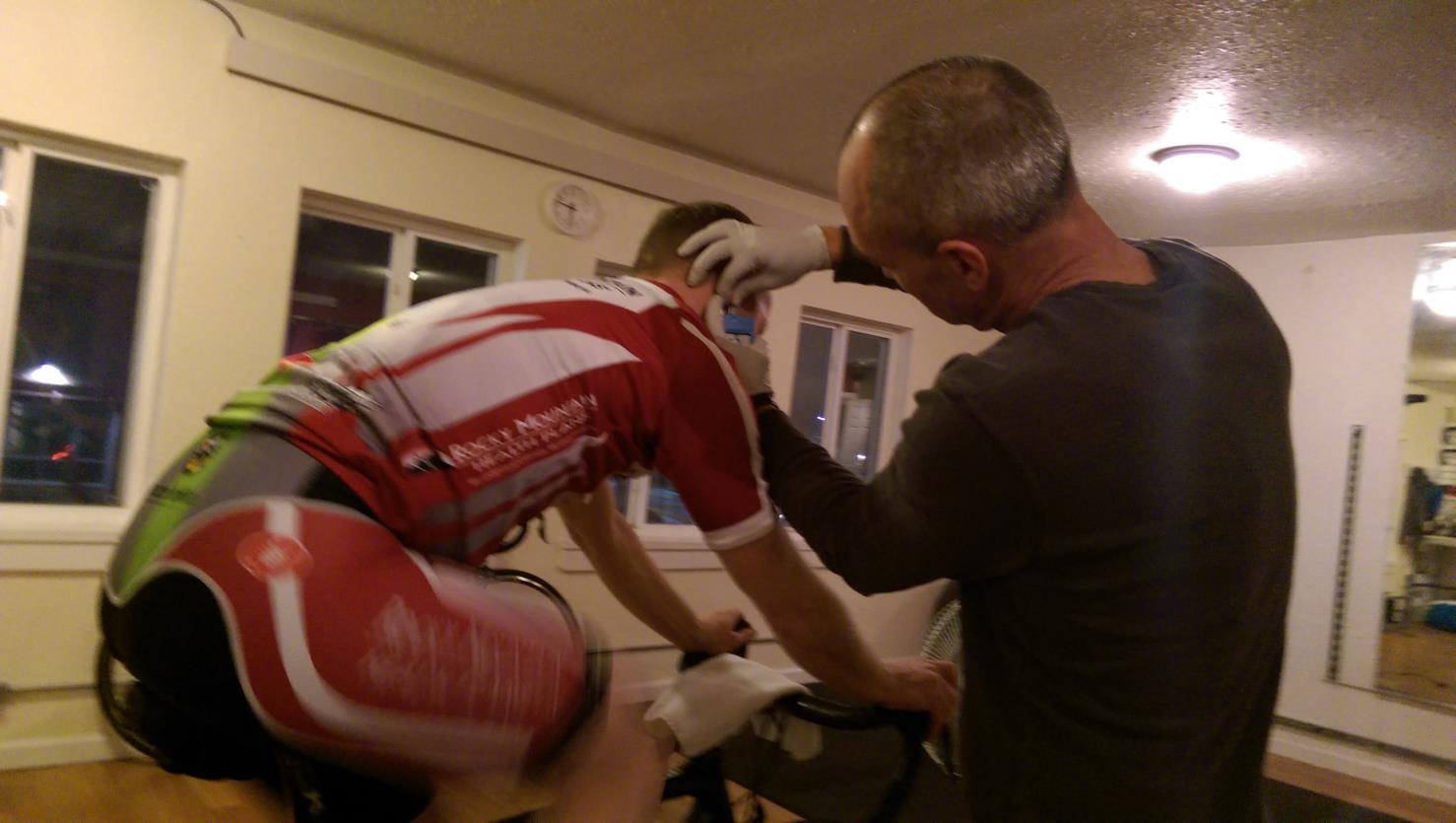
What's involved: This performance test is done on a CompuTrainer using the athletes bicycle, a power meter, heart rate monitor, lactate testing device and pc software to control the testing steps. The test lasts approximately 75 minutes which includes equipment set up, warm up, test, warm down, and equipment break down.
Test Protocol: Jon's standard protocol includes a 20 minute power based warm up, 3 step calibration procedure, 15-30 minute test (depending on athlete ability & strength) based on increasing but consistent workloads every 3 minutes while measuring heart rate, cadence, lactate, power, and kj's, prior to each workload increase. All data is collected from our software system except for the lactate levels which we measure by removing a small drop of blood, usually taken from the ear lobe and letting our testing device measure it. Increases in stages will continue until the athlete can no longer maintain 16 mph or 60 rpms on the bike. A 12 minute warm down begins during which we continue to measure said metrics every 4 minutes, and lastly a preliminary debrief.
Results:Testing reports from hard data will be immediately available but the actual report may take up to 48 hours to receive via email. A phone or face to face consult accompanies this report and the athlete will receive BOTH heart rate and power zones. Athlete can choose what parameters are most important and use what he or she needs.
Strengths:This test is highly repeatable with consistent conditions each time it is repeated. Minimizing differing conditions allows the test to show the athletes fluctuating fitness differences from test to test. This sort of test is specifically valuable for the beginning of the season as a marker or baseline, then mid-way through the season to mark improvements, then finally after our peak event or at the end of the season to set a top-form standard in which to compare as future training & preparation.
Weaknesses:The consistency of test conditions may be a plus, however, it is a test done inside on a trainer. Real world conditions do not exist inside our studio (changing winds, temperature, experiential factors that impact our concentration (like what we see, hear, feel during the test). Essentially, trying to find meaningful data that impacts our outside performance inside a studio on a fixed trainer.
Overall:Super effective test for setting bench marks during the season.
GXT (Graded Exercise Test) Training Zone Identification ($120)
What's involved: This performance test is done on a CompuTrainer using the athletes bicycle, a power meter, heart rate monitor and pc software to control the testing steps. The test lasts approximately 75 minutes which includes equipment set up, warm up, test, warm down, and equipment break down.
Test Protocol: Our standard protocol includes a 20 minute power based warm up, 3 step calibration procedure, 15-30 minute test (depending on athlete ability & strength) based on increasing but consistent workloads every 3 minutes while measuring heart rate, cadence, power, and kj's, prior to each workload increase. Increases in stages will continue until the athlete can no longer maintain 16 mph or 60 rpms on the bike, then a 12 minute warm down begins during which we continue to measure said metrics every 4 minutes, and lastly a preliminary debrief.
Results:Testing reports from hard data will be immediately available but the actual report may take up to 48 hours to receive via email. A phone or face to face consult accompanies this report and the athlete will receive BOTH heart rate and power zones. Athlete can choose what parameters are most important and use what he or she needs.
Strengths:This test is highly repeatable with consistent conditions each time it is repeated. Minimizing differing conditions allows the test to show the athletes fluctuating fitness differences from test to test. This sort of test is specifically valuable for the beginning of the season as a marker or baseline, then mid-way through the season to mark improvements, then finally after our peak event or at the end of the season to set a top-form standard in which to compare as future training & preparation.
Weaknesses:The consistency of test conditions may be a plus, however, it is a test done inside on a trainer. Real world conditions do not exist inside our studio (changing winds, temperature, experiential factors that impact our concentration (like what we see, hear, feel during the test). Essentially, trying to find meaningful data that impacts our outside performance inside a studio on a fixed trainer.
Overall:Effective bench mark test without blood lactate markers. Great for those athletes on a budget.
Functional Threshold Test ($75)
What's involved:This performance test can be done inside on a CompuTrainer using a 2% grade or using a power meter & heart rate monitor outside on a repeatable course that does not contain stop signs, significant intersections or heavy traffic....this usually means a climb that has a consistent gradient less than 5%. For example, two of our repeatable courses here in the Denver area are Deer Creek Canyon or Golden Gate Canyon. 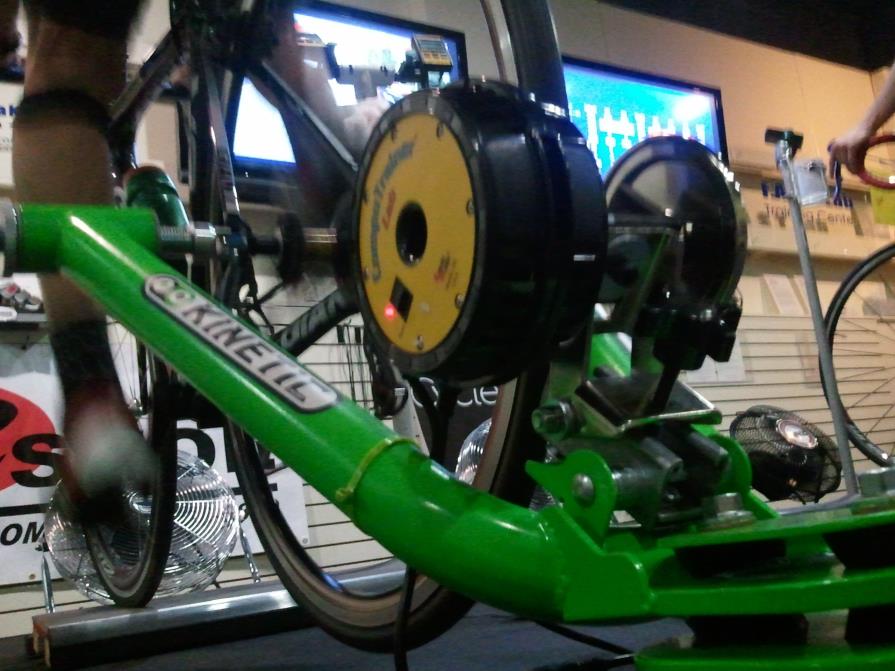 In-door Test Protocol: Our standard protocol includes a pre-written 20 minute warm up on a CompuTrainer. The athlete is weighed after the warm up. Then a 20 minute course on a 1.5% gradient is ridden at a high but sustainable pace, finally finishing with a recovery spin on the return back to the start. Heart rate, cadence, power, and kj's are recorded throughout the procedure then uploaded into our software for analysis.
In-door Test Protocol: Our standard protocol includes a pre-written 20 minute warm up on a CompuTrainer. The athlete is weighed after the warm up. Then a 20 minute course on a 1.5% gradient is ridden at a high but sustainable pace, finally finishing with a recovery spin on the return back to the start. Heart rate, cadence, power, and kj's are recorded throughout the procedure then uploaded into our software for analysis.
On-Road Test Protocol: Our standard protocol includes a 20 minute warm up done on the road with an option to do a specific warm up on a stationary trainer. The athlete is weighed after the warm up is completed at the start area both 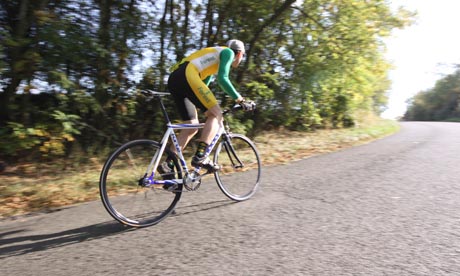 without the bike and with the bike. Then, a 20-25 minute set course (depending on athlete ability & strength) is ridden based on a 2-5% up-hill gradient while measuring heart rate, cadence, power, and kj's for the duration of the test as well as the recovery spin on the return back to the start.
without the bike and with the bike. Then, a 20-25 minute set course (depending on athlete ability & strength) is ridden based on a 2-5% up-hill gradient while measuring heart rate, cadence, power, and kj's for the duration of the test as well as the recovery spin on the return back to the start.
Results:At the completion of the warm up, test, warm down, the data file will be uploaded to our software, analyzed, and a written report will be produced within 48 hours.
Strengths:Real world conditions are present forcing the rider to be proactive, calm, control, reactive and confident. Any deficiency in these athlete characteristics will ultimately affect the power and heart rate of the athlete.
Weaknesses: While this test is highly repeatable, the test conditions beyond grade and distance can and will be different. Wind, temperature and traffic can and will play a role in the athletes ability to manage his or her performance.
Overall: Economical & effective test for those athletes who rely mostly on power data for training. Repeatable, easy to monitor progress throughout the season.
Cost
Generally, Coach Jon charges $100/per hour of service for his professional service time plus supplies where assessments are involved. Typically, a performance assessment takes 1.5 hours that includes equipment set up, athlete interview, data intake and testing. All assessments can be completed in Jon's athlete service bay of his home at 7865 S Windermere Circle, Littleton, CO. If the assessment involves travel to a specific location within 1 hour of Littleton, CO, Coach Jon will add a travel fee of $25. If the service area is outside the 1 hour travel area, mileage fee of $.48 per mile will be added for the round trip.
If you are interested in these services Please contact Jon. He is happy to accommodate reasonable needs given enough time to plan prepare and schedule.
